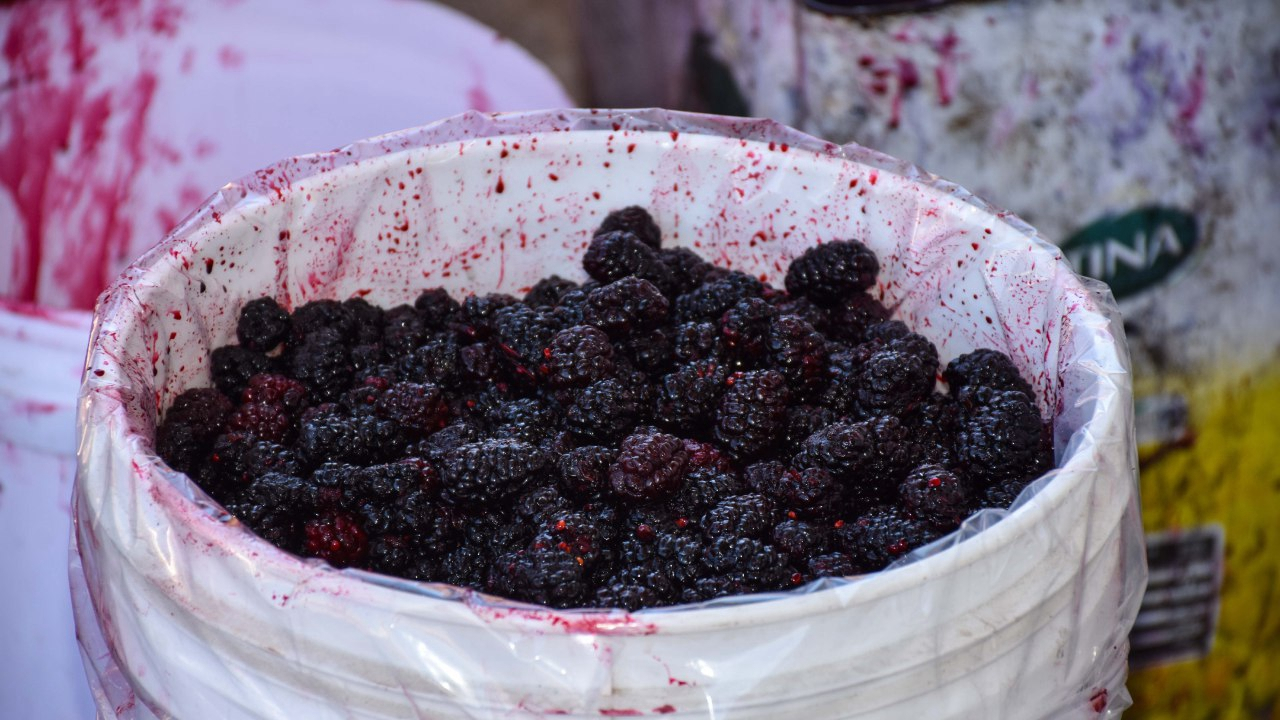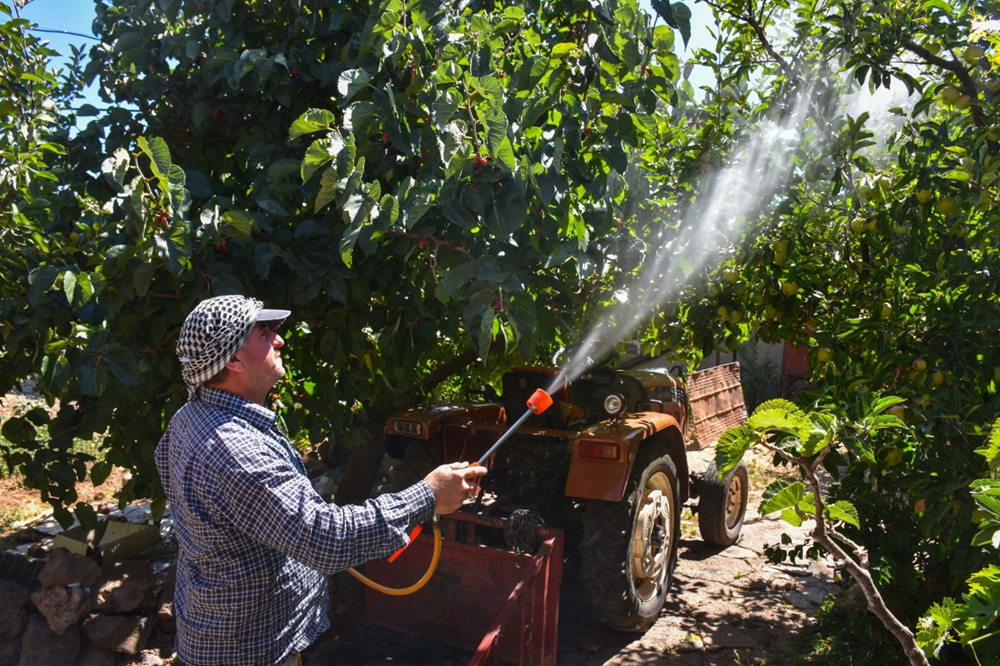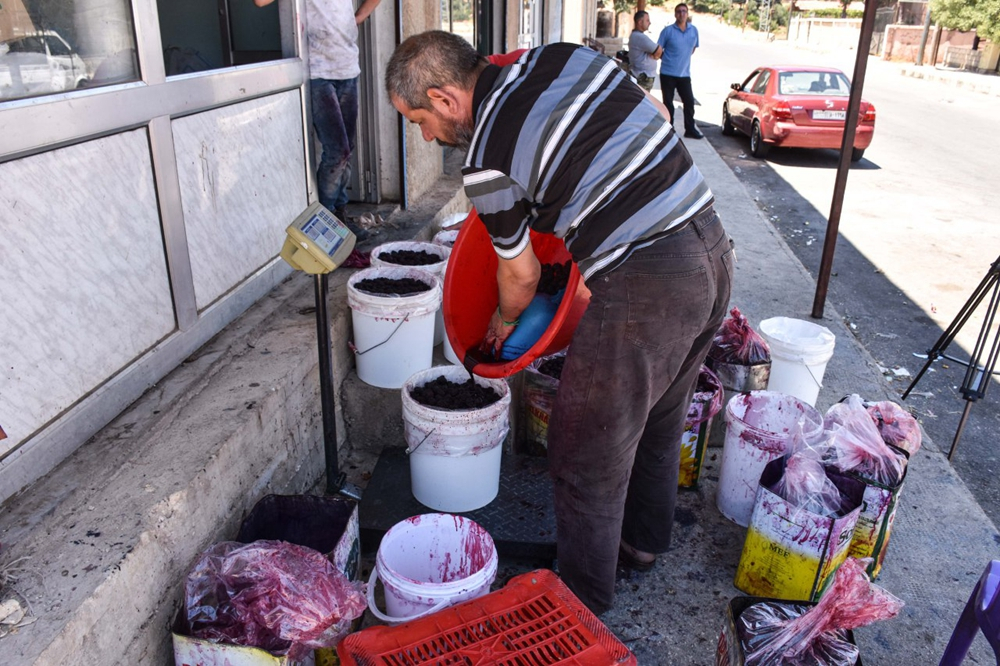

Berries washed, packed and ready to be shipped in Syria. /CGTN Photo
This week, tensions along the Syrian–Israeli frontier in Golan saw yet another escalation, as Israel launched a missile strike hitting what Israel said was Lebanese militants' positions inside Syrian army posts.
The escalating tensions make life difficult for those living along the frontier, but life goes on and for many people, the new situation is an improvement, like in a small town on the foothill of mount Hermon between warring military positions.
The town of Hadar is located around 100 km southwest of Damascus along the frontier between Syria and Israel. Throughout the Syrian conflict, the town was surrounded by militants from different radical groups targeting the town's religious Druze minority. The years of fighting has denied the town access to its surrounding fields and orchards.

Farmer Hosni Fakher tends to his apple trees. /CGTN Photo
But when Damascus retook the area almost a year ago, the residents went back to tending to their fields, once more harvesting delicious crops that made the town famous for its berries and apples.
This year there were no apples as it took residents time to go back to fields that were haunted by clashes and leftover explosive devices. But the berry season was good this year especially for Hassan Al-Shaar, whose family has a berry orchard for over 40 years.

Berry dealer Ahmad prepares his stock. /CGTN Photo
Berries are hand-picked, washed, packed and then delivered to the capital through a maze of checkpoints to be sold at nearly two U.S. dollars a kilogram, which means that Al-Shaar family could live off their berry crops for a full year while waiting for the apple trees to bounce back to life.
Years of conflict in Syria have left the economy in ruins with people struggling to provide everyday needs. So for the farmers of Hadar, working in their fields despite the risks is the only way to survive.

Copyright © 2018 CGTN. Beijing ICP prepared NO.16065310-3
Copyright © 2018 CGTN. Beijing ICP prepared NO.16065310-3